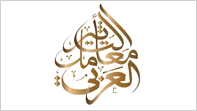What is the Quranic story and its relation to thinking and its development among children in primary education stages in Libya
DOI:
https://doi.org/10.51984/johs.v20i4.2301Keywords:
Quranic story, Story, Thinking, Development, TeacherAbstract
This study is considered a proposal to add a special course labeled (tQur’anic story) in the primary education stages in Libya, or to add a special section to the Quranic story in the syllabus (Islamic education) in the primary education stages, and not a field study; Because the application of this proposal requires at least two academic years for the researcher to prove the extent to which the tQur’anic story is used in developing thinking among children in primary education stages in Libya, as this study is considered an invitation to study the development of thinking in the light of the stories of the Noble Qur’an; Because the Quranic story is one of the topics that occupied a large space in the Holy Qur’an, as it contributes to what it presents to man from the summary of human experiences in removing the veil of negligence and forgetting, and refining the human memory and convincing him of what is correct.
The most important feature of this study is that it clarifies the concept of the Quranic story, its elements, characteristics, and objectives, with an explanation of the concept of thinking and its connection with the Holy Qur’an by explaining the methods of mental education, and the rules for developing and advancing thinking in the Holy Qur’an, with a presentation of examples of the stories of the Holy Qur’an and how the teacher narrates them to students .
The most important findings of the study are that the use of the analytical narration of the Quranic story, and the conclusions and implications it contains, and the selection of the appropriate method in which the story is told for each stage of education, has a significant impact on the development of thinking in children, as the most important thing recommended by the study is the necessity of Reconsidering the methods of teaching and learning the Noble Qur’an, and paying close attention to issues related to thinking, contemplation and contemplation of the Noble Qur’an, a great interest in education curricula in Libya.
Downloads
Downloads
Published
Issue
Section
License
Journal of Humanities Policy on Intellectual Property and Plagiarism
1. Commitment to Intellectual Property and Ethics
The Journal of Humanities (JOHS) is fully committed to respecting intellectual property rights and aims to protect the originality and authentic work of authors who submit their manuscripts for publication. The journal takes a firm stand against articles that contain any form of plagiarism and emphasizes the need for all researchers to adhere to the highest ethical standards in scientific research.
2. Anti-Plagiarism Policy
The journal considers plagiarism a serious violation of academic ethics. Therefore, authors must ensure that their work is original and not plagiarized, and that any use of external sources is properly cited and documented according to correct academic standards.
-
Actions Taken: In the event that any plagiarism or academic theft is discovered in a submitted article, the editorial board will contact the author to request a formal explanation within a maximum period of two weeks from the date of notification.
-
Investigation and Decision: After receiving the explanation, the article will be referred to the journal's specialized committees, which will investigate the matter and take the necessary measures, which may include the permanent rejection of the article and the imposition of disciplinary actions.
3. Publication License and Author Rights
The journal adopts the Creative Commons license type Attribution-NonCommercial-NoDerivs 4.0 International (CC BY-NC-ND 4.0), which allows for the following:
-
Attribution: Users are entitled to cite the content published in the journal and use it in their work, provided that the original source and author are clearly credited.
-
Non-Commercial: The published content may not be used for any commercial purpose.
-
NoDerivs: It is not permitted to make any modifications, distortions, or to build derivative works from the published content.
Under this license, authors are required to complete an exclusive license agreement for the journal. Authors retain the rights to their research data and may reuse and share their work for scientific purposes with proper citation.







